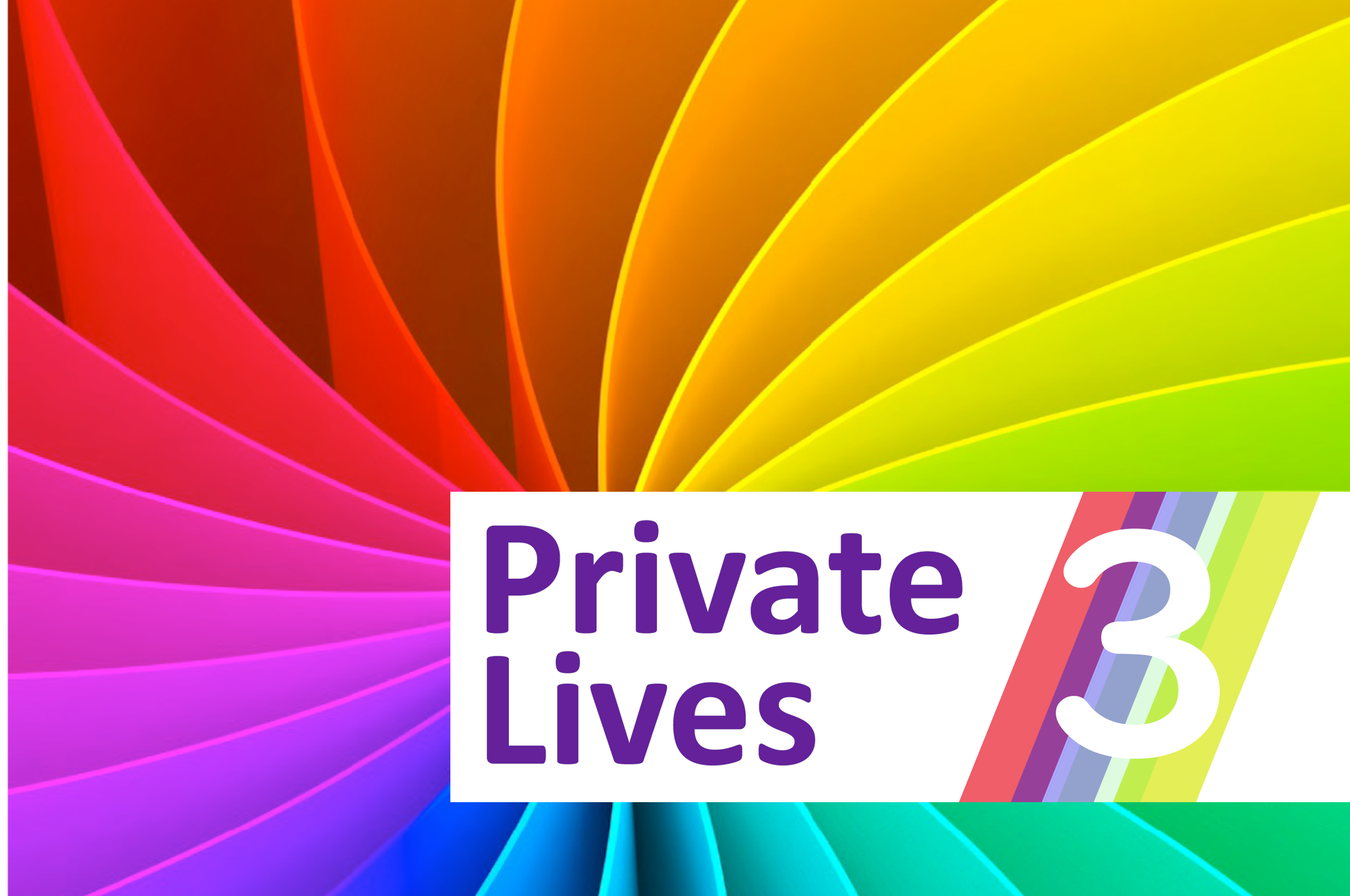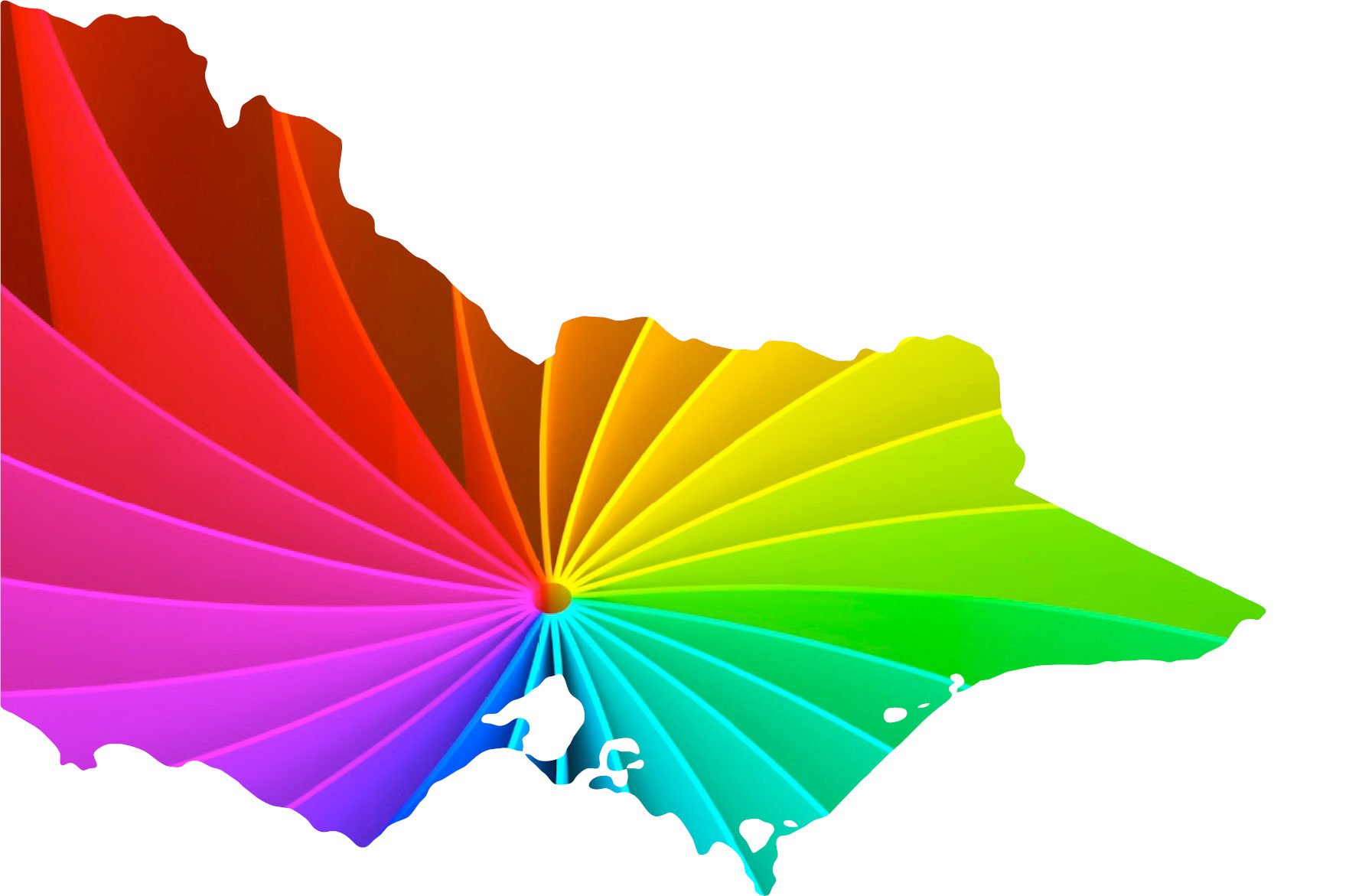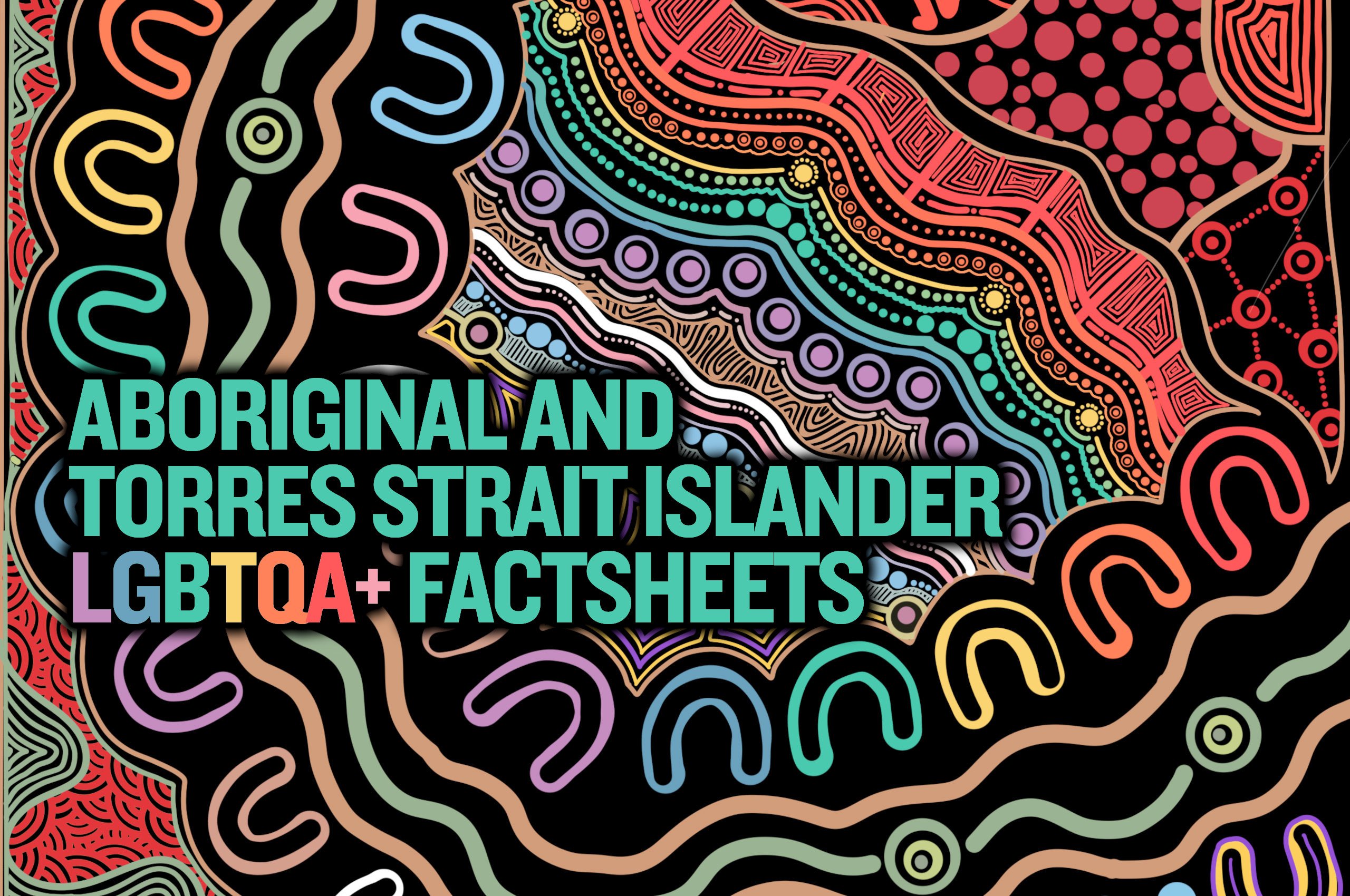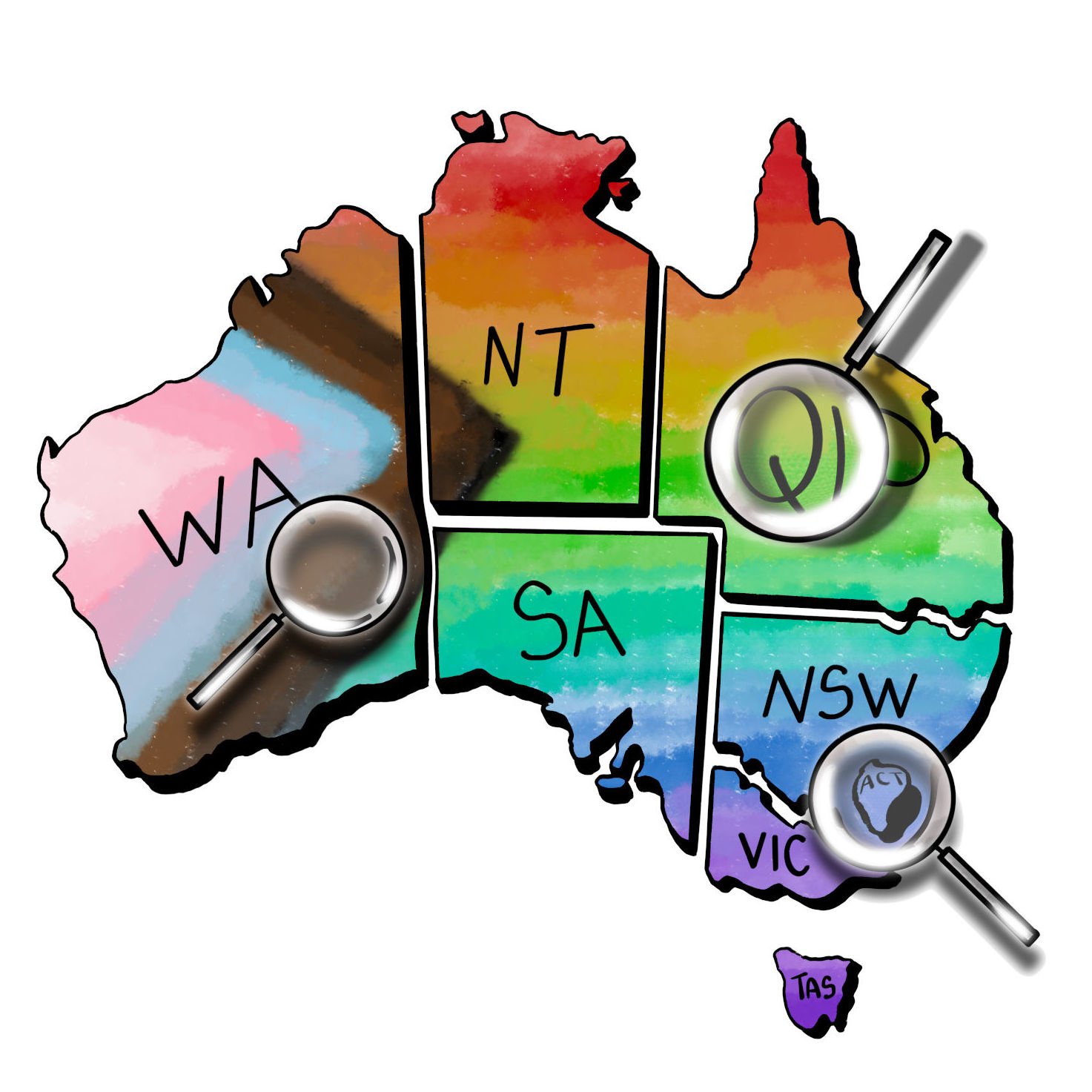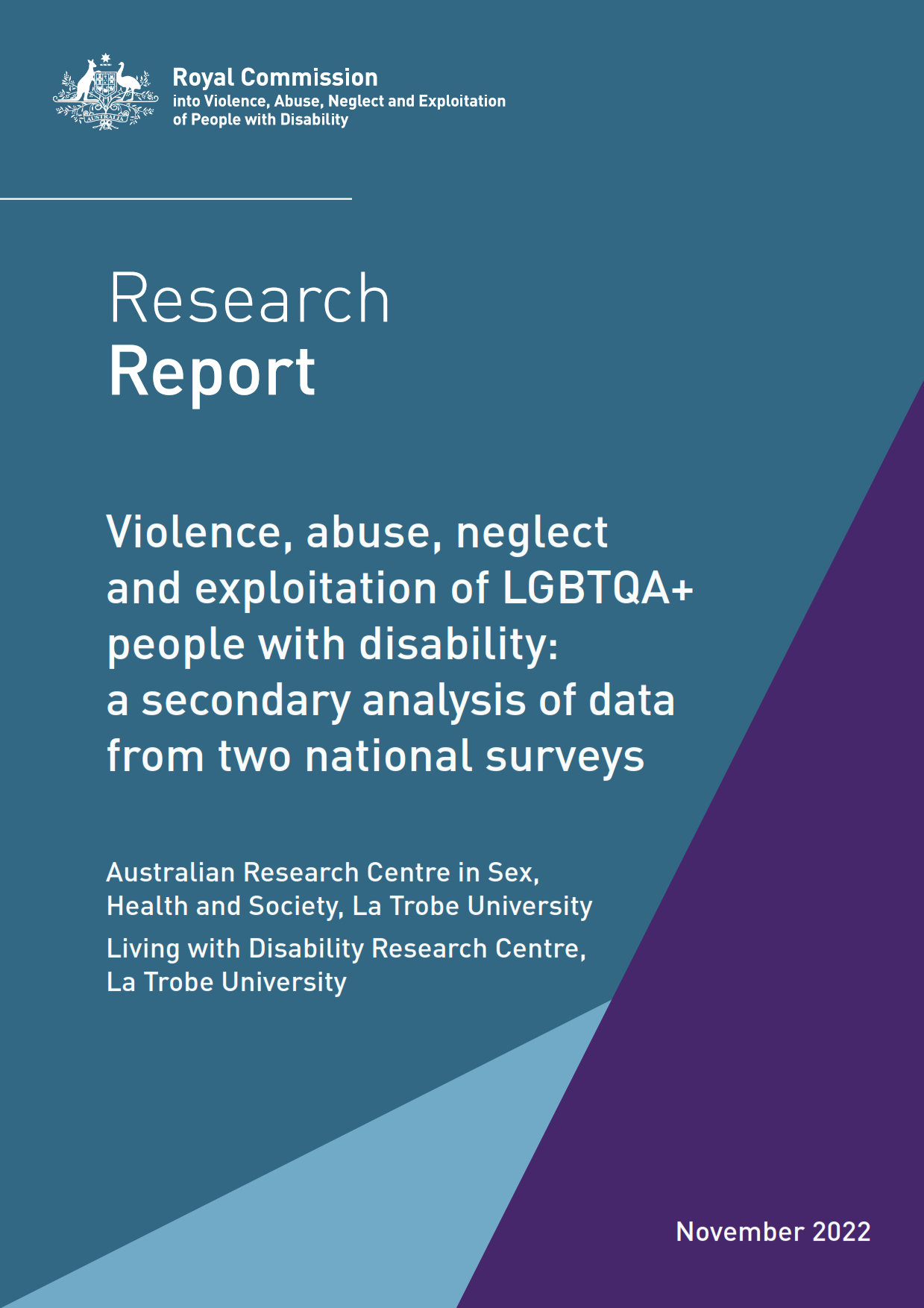Private Lives 3
2020-2021
Adam O. Hill, Adam Bourne, Ruth McNair, Marina Carman, Anthony Lyons
Private Lives 3 is the third iteration of the Private Lives surveys. Private Lives 3 is Australia’s largest national survey of the health and wellbeing of lesbian, gay, bisexual, transgender, intersex and queer (LGBTIQ) people to date. It was conducted by the Australian Research Centre in Sex, Health and Society (ARCSHS) at La Trobe University. The survey provides vital information for health professionals, service providers, community organisations and governments to better understand andsupport the health and wellbeing of LGBTIQ people in Australia. Private Lives 3 was jointly funded by the Victorian Department of Health and Human Services and the Victorian Department of Premier and Cabinet.
Reports
2020
A national survey of the health and wellbeing of LGBTIQ people in Australia
Adam O. Hill, Adam Bourne, Ruth McNair, Marina Carman and Anthony Lyons
This report presents data from participants of Private Lives 3 who were living in Australia at the time of the survey.
Download the Private Lives 3 National Report (PDF, 2.8MB)
2021
Private Lives 3: The health and wellbeing of LGBTQ people in Victoria
Adam O. Hill, Adam Bourne, Ruth McNair, Marina Carman and Anthony Lyons
This report presents data from LGBTQ participants of Private Lives 3 who were living in Victoria at the time of the survey.
Download the Private Lives 3 Victorian Summary Report (PDF, 2.6MB)
Broadsheets and research summaries
Since the completion of the Private Lives 3 survey and production of the national and state reports, the ARCSHS research team has been conducting further analyses to generate more nuanced knowledge of the experiences of LGBTQ adults. Some of these findings are reflected in academic journal articles, while some are presented in summary reports of this research. Research summaries are made available below as they are completed.
Additional analyses and outputs
Aboriginal and Torres Strait Islander LGBTQA+ factsheets
Between 2017 and 2020, several national surveys of LGBTQA+ people across Australia were conducted by the Telethon Kids Institute (now the Kids Research Institute) and by ARCSHS. These included:
- Trans Pathways: a study of trans and gender diverse young people and their mental health and care pathways
- Private Lives 3: a study of health and wellbeing among LGBTQ+ adults (aged 18+)
- Writing Themselves In 4: a study of health and wellbeing among LGBTQA+ young people (aged 14-21)
Each of these studies heard from some LGBTQA+ people who were also Aboriginal and/or Torres Strait Islander. To highlight their specific and unique experiences, this project sought to draw together the responses from these LGBTQA+ Aboriginal and Torres Strait Islander people and present them in a series of factsheets.
LGBTQA+ mental health and suicidality briefing papers
Drawing from Private Lives 3, as well as Writing Themselves In 4 and Pride and Pandemic, these reports document the rates and associations of mental health and suicidality for LGBTQA+ community members at the State and Territory level in Australia. Across eight individual reports, analyses focus on State- and Territory-level rates of suicidality, mental ill-health, healthcare service access and modalities, risk factors such as discrimination and harassment experiences, and protective factors such as community- and school-based belonging. Each report also documents the association between these factors and levels of suicidality within each State and Territory in Australia.
To establish a broader context for these results, each report also provides comparative estimates between (a) the State or Territory results with general population estimates in Australia from the Australian Bureau of Statistics, and (b) a comparison between States and Territories (broadly) from the available data. Lastly, these reports also provide an assessment of each State or Territory's current policy and programming context (along with an assessment at the Primary Health Network level) to establish ways of furthering policy and health reform at the State and Territory level.
Rainbow Realities
The Rainbow Realities report was commissioned by the Commonwealth Department of Health and Aged Care to inform development of the 10-year LGBTIQA+ Health and Wellbeing Action Plan. Rainbow Realities provides a synthesis of pre-existing findings as well as more than 50 new analyses derived from the data of six surveys of LGBTQA+ populations in Australia, including Private Lives 3, as well as Writing Themselves In 4, SWASH, Trans Pathways , Walkern Katatdjin (Rainbow Knowledge) and Pride and Pandemic.
The report has been thematically organised into 10 chapters relating to either a key determinant or contributing factor to LGBTQA+ health outcomes, or a topic of particular interest: Mental health and suicidality; income inequality; housing and experiences of homelessness; discrimination and abuse; family violence and sexual assault; alcohol and other drugs; relationships; parenting and sexual and reproductive health; gender affirmation and trans affirming practices; general healthcare; Aboriginal and Torres Strait Islander people and intersectional identities.
Violence, abuse, neglect and exploitation of LGBTQA+ people with disability: a secondary analysis of data from two national surveys
This report was compiled to inform the Royal Commission into Violence, Abuse, Neglect and Exploitation of People with Disability. It presents data on the experiences of lesbian, gay, bisexual, trans and gender diverse, queer and asexual (LGBTQA+) people with disability in Australia from Private Lives 3, as well as Writing Themselves In 4.
The report covers a wide range of experiences and issues of concern for LGBTQA+ people with disability. This includes: disclosure of sexuality or gender identity to others, and feelings of acceptance or support when doing so; feelings of safety (or otherwise) at work, in educational contexts and in LGBTQA+-specific spaces; experiences of harassment, abuse and discrimination; family and intimate partner violence; mental health or experiences of suicidal ideation or attempt; and feelings of connection to communities of people living with disability and/or those who are LGBTQA+.
Journal articles
The Private Lives 3 research team will continue to produce journal articles that focus in on specific issues in more detail. These will be added to this webpage as they are published online. If you are not able to access them via the links below, please contact arcshs@latrobe.edu.au
- From euphoria to wellbeing: Correlates of gender euphoria and its association with mental wellbeing among transgender adults
Experiencing gender euphoria may have important implications for the mental wellbeing of trans people, however, some are less likely than others to report these experiences. These findings have important implications for shaping trans affirming practices that enable experiences of gender euphoria. - Typologies of alcohol and other drug-related risk among lesbian, gay, bisexual, transgender (trans) and queer adults
This study looked at patterns of alcohol and other drug (AOD) use among LGBTQ+ adults in Australia to identify different risk levels and related factors. The findings indicate that level of AOD risk is not uniform among some LGBTQ+ adults, nor is the distribution of harms experienced by them. - Out in Suburbia: Associations between residential location, mental health, and community connectedness among LGBTQ Australians
This paper explores how mental health outcomes and LGBTQ community-connection differ among LGBTQ adults by geographic location. Even when controlling for key demographic factors (age, income, employment, education, gender, and sexuality), cisgender LGBQ adults living in outer suburban areas reported poorer mental health than those living in inner cities. LGBTQ adults living in outer suburban, regional, and rural areas were less likely to feel part of the LGBTQ community than those living in inner cities. Trans adults living in outer suburban areas found their local communities to be less trans affirming than those in inner cities. Results suggest that geographic location influences LGBTQ wellbeing and community connection, confirming the need for accessible, place-based services and support. - Community connection is associated with lower psychological distress for sexual minority women who view community connection positively
Connection to the LGBTQ community in Australia is important for the mental wellbeing of some, but not all, LBQ+ women, and is contingent upon positive feelings about community participation. Sexual minority women's relationships to the LGBTQ community are often complex, and community connection and participation in and of itself is not a panacea for the negative outcomes associated with sexual minority stressors. - Experiences of reporting family violence among LGBTQ adults in Australia: Findings from the Private Lives 3 national survey
The findings of this study highlight inadequacies in family violence frameworks in promoting or facilitating access to services that could benefit this population. Encouraging LGBTQ+ people to engage with a regular GP, establishing family violence services that cater to the specific needs of LGBTQ+ people, and training family violence responders and service providers to recognise diverse relationship dynamics may improve support outcomes for LGBTQ+ survivors of family violence. - Cervical screening in LGBTQ people with a cervix: The importance of affirming services in reaching cervical cancer elimination targets
This paper examines rates of attendance and associated factors of cervical screening in LGBTQ communities. Trans men were least likely to access cervical screening, while bisexual, pansexual and queer identified participants were most likely to access screening. People who lived outside inner-suburban areas and those who had a disability were less likely to have had screening. Evidence of trusting relationships with a general practitioner (having a regular GP, and GP’s knowledge of the individual’s LGBTQ identity) increased the likelihood that participants had screened, as did recent access to a medical service that was LGBTQ-inclusive or catered specifically to LGBTQ communities. - The influence of care continuity and disclosure of sexual orientation in general practice on the use of mental health services among sexual minority women
LBQ+ cisgender women with a regular GP were more likely to have accessed mental health services in the last 12 months, and those whose GP knew of their sexuality were more likely to have accessed LGBTIQA+ inclusive mental health services. GPs may be missing opportunities to promote continuity of care through developing trusting relationships with specific sub-populations of LBQ+ women, which in turn appears to sustain inequitable access to mental health care. - Family Violence Within LGBTQ Communities in Australia: Intersectional Experiences and Associations with Mental Health Outcomes
While prior research has documented intimate partner violence (IPV) and family of origin violence (FOV) experienced by LGBTQ communities at rates at least comparable to heterosexual and/or cisgender populations, little knowledge exists of how this experience occurs within intersections of these communities and who is most at risk. - Preferences for Types of Inclusive Family Violence Services Among LGBTQ People in Australia
LGBTQ people are less likely to seek support and face significant barriers in accessing affirmative family violence support services. Efforts to improve family violence service access must be grounded in the preferences of LGBTQ people themselves. - Health intervention experiences and associated mental health outcomes in a sample of LGBTQ people with intersex variations in Australia
This paper examines associations between healthcare experiences and mental health outcomes among LGBTQ people with intersex variations in Australia, finding evidence of associations between suicidal thinking, suicidal attempts, depression or anxiety and negative healthcare experiences, including limited autonomy and consent, and challenges accessing psychological support. - Alcohol and tobacco consumption among Australian sexual minority women: Patterns of use and service engagement
This paper examines the sociodemographic and cultural factors associated with alcohol and tobacco use among sexual minority women in Australia. - Demographic and psychosocial factors associated with recent suicidal ideation and suicide attempts among lesbian, gay, bisexual, pansexual, queer, and asexual (LGBQ) people in Australia: Correlates of suicidality among LGBQ Australians
This paper examines the demographic and psychosocial factors that correlate (positively or negatively) to suicide attempts and suicidal ideation among LGBQ people in Australia. - Demographic and psychosocial factors associated with recent suicidal ideation and suicide attempts among trans and gender diverse people in Australia
This paper examines who among trans and gender diverse participants was most likely to have had thought of taking their own life, or had attempted to do. - Factors associated with experiences of abuse among lesbian, gay, bisexual, trans, queer, and asexual (LGBTQA+) adults with disability in Australia
This paper focuses on people with disability who participated in Private Lives 3 and reports on who was most likely to have experienced different forms of harassment and abuse. - Naming and recognition of intimate partner violence and family of origin violence among LGBTQ communities in Australia
This paper examines the disconnect between objective and subjective assessments of intimate partner and family of origin violence among LGBTQ communities in Australia and discusses the challenges people may face in naming their experience and seeking support.
